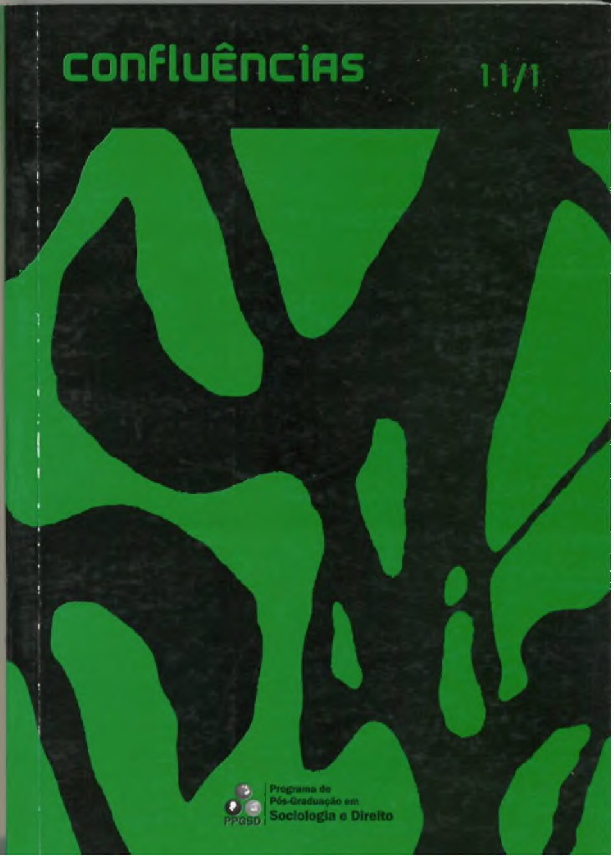A interdição da lealdade: a amizade como transgressão social
DOI:
https://doi.org/10.22409/conflu11i2.p181Abstract
A fluidez dos conceitos de pena e castigo orienta uma reflexão sob a perspectiva genealógica de Nietzsche. Pretende investigar as idéias que fundaram as penas, os debates e descontinuidades que transformaram uma parte significativa do mundo real informal em um mundo formal abstrato que se revela no sentido da lei, na realidade concreta da construção do aparelho estatal e de relações pessoais específicas pelas vias da punição. Ruir com as amizades, transformar o sentimento de lealdade pessoal em um sentimento de dever ser, secundarizar os vínculos, obstaculizar as relações de afeto são os fundamentos das discussões que erguem o monstro sagrado da cidadania aprisionada pelas grades da democracia, cujo exército de lei desconhece a pessoa singular, a amizade e impõe uma ética do bem comum acima de quaisquer vínculos pessoais, cujo castigo é fundamento de sua eficácia.Downloads
Downloads
Published
2009-12-10
How to Cite
RODRIGUES, C. E.; FAGUNDEZ, P. R. ÁVILA. A interdição da lealdade: a amizade como transgressão social. Confluências | Interdisciplinary Review of Sociology and Law, v. 11, n. 2, p. 5-26, 10 Dec. 2009.
Issue
Section
Artigos
License
The authors hold the copyright, with first publication rights granted to the journal, being the work simultaneously licensed under the Creative Commons Attribution Licence, which allows the work to be shared with acknowledgement of authorship and first publication in this journal.
The authors have authorization to separately purchase additional contracts of non-exclusive distribution of the work's version published in this journal (e.g.:publication in institutional repositories or as a book chapter), with acknowledgment of authorship and first publication in this journal.
The authors have permission and are encouraged to publish and disseminate their work online (e.g.:in institutional repositories or on their personal page), at any point - either before or during the editorial process, since it may generate productive changes, as well as increase the impact and citation of the published work.







